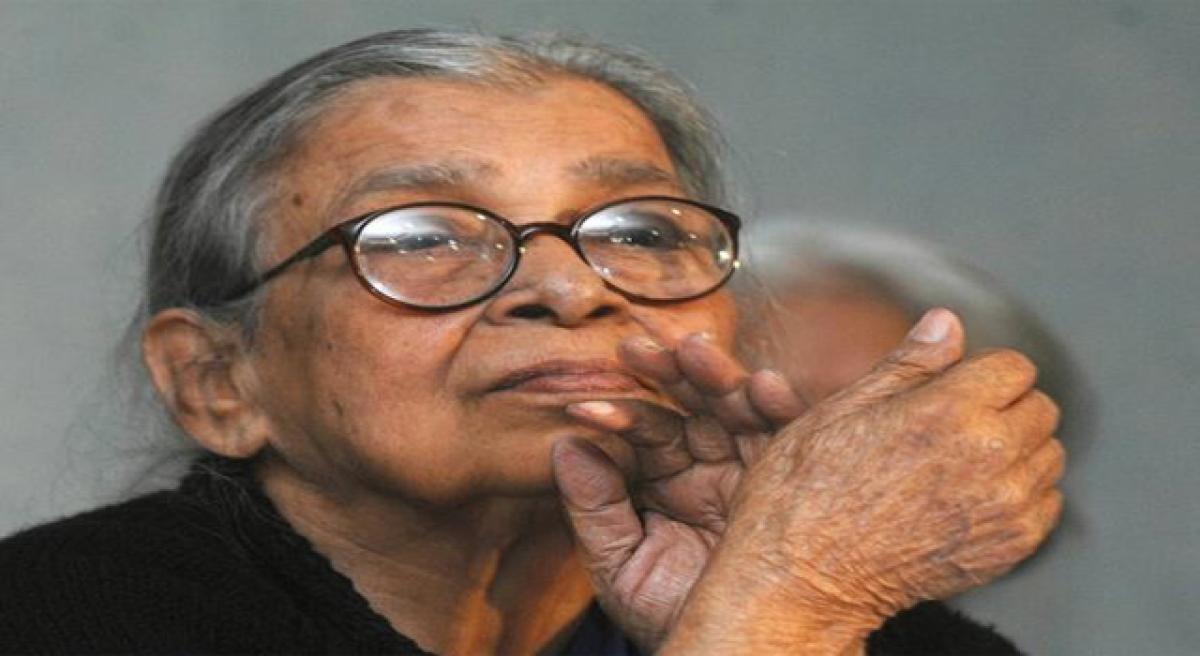Live
- PM Modi highlights govt's efforts to make Odisha prosperous and one of the fastest-growing states
- Hezbollah fires 200 rockets at northern, central Israel, injuring eight
- Allu Arjun's Family Appearance on Unstoppable with NBK Breaks Viewership Records
- Unity of hearts & minds essential for peace & progress, says J&K Lt Governor
- IPL 2025 Auction: I deserve Rs 18 cr price, says Chahal on being acquired by Punjab Kings
- EAM Jaishankar inaugurates new premises of Indian embassy in Rome
- Sailing vessel INSV Tarini embarks on second leg of expedition to New Zealand
- Over 15,000 people affected by rain-related disasters in Sri Lanka
- IPL 2025 Auction: RCB acquire Hazlewood for Rs 12.50 cr; Gujarat Titans bag Prasidh Krishna at Rs 9.5 crore
- Maharashtra result reflects the outcome of Congress' destructive politics: BJP's Shazia Ilmi
Just In

At a time when titillating experiences, dazzling display of affluence, the infectious lifestyles of the neo rich, etc., were the themes of creative fiction and art, a legend sprang from the soil of the enlightened land, dedicating her creative genius to voice the voice of the voiceless, to sing the song of the oppressed and to create a world of literature for the socially ostracised and economical
At a time when titillating experiences, dazzling display of affluence, the infectious lifestyles of the neo rich, etc., were the themes of creative fiction and art, a legend sprang from the soil of the enlightened land, dedicating her creative genius to voice the voice of the voiceless, to sing the song of the oppressed and to create a world of literature for the socially ostracised and economically marginalised.
In the death of Mahasweta Devi, the alienated Adivasis, the outcast, the forest dweller, a discriminated woman, a marginalised peasant, or anyone and everyone who is disempowered and disenfranchised, lost a literary colossus.
Her sources of inspiration for unparallel literary works capture her indomitable personality. Let’s read in her own words: “I have always believed that the real history is made by ordinary people. I constantly come across the reappearance, in various forms, of folklore, ballads, myths and legends, carried by ordinary people across generations. ...
The reason and inspiration for my writing are those people who are exploited and used, and yet do not accept defeat. For me, the endless source of ingredients for writing is in these amazingly noble, suffering human beings. Why should I look for my raw material elsewhere, once I have started knowing them? Sometimes it seems to me that my writing is really their doing.”
For her nationalism is not lifeless geography but the lives of toiling Indians, as she said in her inaugural address at Frankfurt Book Fair. She said, “This is truly the age where the Joota (shoe) is Japani (Japanese), Patloon (pants) is Englistani (British), the Topi (hat) is Roosi (Russian), But the Dil... Dil (heart) is always Hindustani (Indian)... My country, Torn, Tattered, Proud, Beautiful, Hot, Humid, Cold, Sandy, Shining India. My country.”
Mahasweta Devi is unique for achieving international recognition, though most of her works were written exclusively in a regional language and on regional issues. At a time when snobbery dominates the cultural space in a globalised society, she through her writings and activism represented the literary voice of the conscience. Unflagging creative expression and unflinching activism were entwined to unveil the personality of this literary prodigy.
For her literature is not imaginary. She combines fact and fiction to forcefully express a reality. Real experiences of people got a thematic expression in her writings. She covered long distances on foot. She walked miles, stayed somewhere overnight, went from place to place.
Identification with the cause of the tribals, both as a writer and an activist, gave her the charisma. But, Mahasweta used her illustrious profile to highlight the multiple deprivations suffered by the backward most. Thus, she is a true public intellectual.
Despite her early proximity with communist cultural movement, she never hesitated to valiantly question the Left government’s industrial policies that resulted in land alienation, thus revealing the untiring dissenting voice in her. Though never wished to call herself a feminist, gender concerns remain an exemplum in Mahasweta Devi’s literary narrative.
A marvel passes away into the wonderful history of Indian literature. But, her legacy shall continue to inspire as long as deprivation, oppression, social prejudices, disempowerment and discrimination rock this magnificent land of India.

© 2024 Hyderabad Media House Limited/The Hans India. All rights reserved. Powered by hocalwire.com







